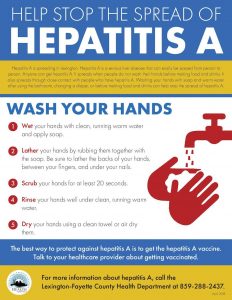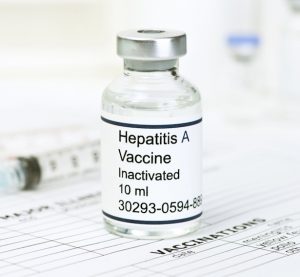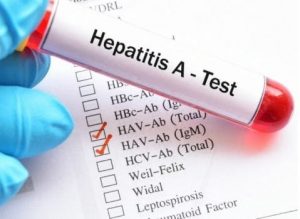In the spring of 2018, there were a total of 660,755 restaurants in the United States and according to an article in TheSimpleDollar.com, Americans on average eat 4.2 commercially prepared meals per week. In other words, as a nation, we eat out between four and five times a week. This number equates to 18.2 meals per month eaten outside the home.
There is no doubt that owning and operating a restaurant is a tough business. In my line of work as a risk management and safety consultant who cut his teeth as a teen in the industry, I have known, consulted and trained my share of restaurateurs, franchisees and managers over the years.
In this industry, margins are very low and you have to sell a lot of food in order to turn a profit. It’s estimated that around 27 percent of new restaurants fail within the first year of business. That number approaches 60 percent by the five-year mark.
A lot comes into play as to why restaurants succeed or fail — competition, poor location, traffic access or poor parking, weak marketing strategies, poor management, staffing issues, bad inventory management, etc. Bad reviews and poor customer service are two components that will take a restaurant down the quickest. Having either issue will push away even the most loyal customers.
 Today, restaurateurs and franchisees have to contend with the effects of negative news stories regarding a hepatitis A outbreak within their restaurant, as well as the costs associated with contending with an outbreak and the impact on future sales.
Today, restaurateurs and franchisees have to contend with the effects of negative news stories regarding a hepatitis A outbreak within their restaurant, as well as the costs associated with contending with an outbreak and the impact on future sales.
The economic costs of a hepatitis A outbreak can be devastating to a restaurateur, franchisee, or investor. With the invention of social media today, news of an outbreak within your restaurant can travel fast, destroying customer loyalty and future revenues which can take months and even years to recover.
For instance, do you remember all of the Chi-Chi’s restaurants? Well, they went bankrupt in the United States and Canada following a hepatitis A outbreak in 2003. This was a time before social media. Just think of how damaging a recycled Facebook post would be to a restaurants reputation in today’s world.
Just in my office a few weeks back, I overheard a handful of people discussing how they would not be returning to the local restaurant down the street. They had made up their minds after seeing on social media that a recent outbreak had hit the local news.
The primary risk factors for spreading hepatitis A still appears to be illicit drug use, homelessness and the transmission of bodily fluids. In Kentucky, a contaminated food source has never been identified with this recent outbreak, nor has there been any record of a transmission from a restaurant worker to the public. However, this does not lessen the fears and concerns of the public after a food service worker has been affected.
Thus far, there is no evidence that food service workers are at any greater risk of acquiring hepatitis A than those in other occupations, but the food service industry tends to employ a larger percentage of workers that partake in illicit drug use.
Luckily for the public, only 2-3 percent of all hepatitis A cases are acquired through restaurant food. Did you hear me? Only 2-3 percent of all hepatitis A cases are acquired through restaurant food and it is usually always transmitted through uncooked food such as salads, fruits, and vegetables.
Not to negate the public’s fears or concerns, but the odds of acquiring hepatitis A from a food service worker that handled your food is very, very low.
Hepatitis A is caused by a virus that spreads from person to person when they don’t wash their hands. It’s a fecal-oral disease, which means that the virus enters your body through the mouth and is excreted in the feces. Infected people who don’t wash their hands well after using the restroom can easily pass the virus along to whatever or whomever they touch.
 If they prepare or serve food, they could expose anyone who eats the food, but this is why food handlers are required to wear disposable plastic, nitrile, vinyl or latex gloves.
If they prepare or serve food, they could expose anyone who eats the food, but this is why food handlers are required to wear disposable plastic, nitrile, vinyl or latex gloves.
So how can a restaurateur or franchisee better prepare for an outbreak, and better mitigate the losses of hepatitis A outbreak within one of their restaurants?
The best way to prevent the hepatitis A infection is to get vaccinated; however, with employee turnover in the food service industry being extremely high, it is impractical and too cost prohibited. Especially since more than half of your staff won’t even be employed a few months later.
Therefore, restaurant management must instead enforce good proper hygiene and food handling standards to prevent the spread of this disease.
The reality of a hepatitis A outbreak is that you are going to experience losses that may or may not be covered on your commercial insurance policy. Once an outbreak has occurred it is too late to obtain or add any additional coverage, as many basic GL/PC policies may not have enough coverage to cover recovery efforts to offset the costs of Food Borne Illness claims and Business Income Replacement expenses.
Therefore as a restaurateur or franchisee, I would encourage you to get with your insurance broker to review coverages to see if your policy will respond to all of these potential losses. Here are some additional steps to better mitigate your risk exposures and reduce the impact of a hepatitis A outbreak within your restaurant:
• Understand The Goal – Your goal is to get back to business as quickly as possible, protect your brand and reduce the negative impacts of a hepatitis A outbreak crisis within one of your restaurants.
• Get To Know Your Local Health Department – Proactively reach out to your local and state health department and get to know their role once a hepatitis A outbreak has been identified in a restaurant.
• Create a Plan and Proactively Train Management – Create a crisis management plan and the appropriate policies to handle a hepatitis A outbreak. Then train your management team on how you plan to implement this plan immediately upon notification of a hepatitis A outbreak.
• Draft a Press Statement – Have a prepared statement ready in advance and reviewed by legal counsel and crisis management public relations professionals.
 •Break the News First – By law, restaurants are required to report a hepatitis A outbreak incident to their local health department. If you remain silent after reporting it, someone else has power over your story. Therefore it’s always best to break your own story by contacting the local news or by sending out a press release so that you can control the message. The last thing you want is a disgruntled employee standing in front of your restaurant talking live to the local news station, or playing catch up once the cat is out of the hat.
•Break the News First – By law, restaurants are required to report a hepatitis A outbreak incident to their local health department. If you remain silent after reporting it, someone else has power over your story. Therefore it’s always best to break your own story by contacting the local news or by sending out a press release so that you can control the message. The last thing you want is a disgruntled employee standing in front of your restaurant talking live to the local news station, or playing catch up once the cat is out of the hat.
• Field Media Inquiries Quickly – Control the message by responding immediately to media inquiries. You don’t want reporters to dig too deep while they wait for you to respond, because they want to get the story out first and will find other sources.
• Designate A Single Media Spokesperson – Keep the message consistent. When facing a serious crisis, your restaurant’s CEO/restaurateur/president should be the spokesperson. The public wants the head of the company to speak authoritatively about the incident and the concrete plans to resolve the problem.
• Be Honest – Never hide or misconstrued the facts of an outbreak. Own it and show your sincere concern. Stonewalling and “no comment” will not play out to your advantage.
• Form a Crisis Management Team – One that consists of restaurateurs, CEO, President, human resources, risk management, operations, safety, and other key personnel. You can also hire a professional crisis management public relations firm.
• Keep a Log — If the crisis is serious, start a log of events following the incident. Phone calls made, actions contract taken, times of incidents, and people contacted should be included on the list. This will show you who has what information, and who was responsible for what.
• Send a Message of Cooperation – It shows that you are working diligently with the local and state health departments so that the public recognizes how hard you’re working to prevent similar incidents in the future.
• Communicate Your Countermeasures – Inform the public of standards for cleanliness within your restaurant and the steps you have taken to remedy the situation.
•Cut Off Social Media Account Access – In the middle of a crisis, you only want approved people to have access to managing your social media accounts as well as your website.
 •Use Social Media Wisely – Post social media updates, contact information and use it as a means to schedule interviews with local news stations or newspapers.
•Use Social Media Wisely – Post social media updates, contact information and use it as a means to schedule interviews with local news stations or newspapers.
• React Appropriately to Negative Feedback and Comments Online – Monitor social media sites, hashtags, restaurant review sites, and apps. Respond to negative and/or erroneous comments. Don’t get defensive and stay on message, remain positive, and explain how you’re working to fix the situation.
• Disinfect Like Lives Depend on It – Close the store down immediately upon news of an outbreak and completely disinfect the entire restaurant. You can also contract an outside Bio-decontamination firm to come in and disinfect your restaurant as well.
• Retrain Your Staff – On proper personal hygiene, disinfection procedures and policies.
• Communicate Cleanliness – Post additional signage in the restrooms to inform workers to wash their hands before returning to work. They should also post signage requesting patrons to inform management when a restroom needs cleaning.
• Communicate With Your Customers And Employees – To win back their trust, be honest, sincere and apologetic. Explain how and why their loyalty is so important to you, and vow to earn their trust again.
• Involve the Media – The media can help restaurants improve their image. Invite the media back in to film your improved food safety initiatives, to help spread the word about how a restaurant has turned a negative situation into a positive situation.
• Offer Free Vaccinations – To your staff and concerned patrons.
• Give Food Away – This is a great way to increase traffic, keep the restaurant full and change customer perceptions that have been damaged by a crisis.
• Work Closely With Legal Counsel, Your Insurance Company & Insurance Broker – Immediately notify your insurance company and insurance broker after learning of a hepatitis A outbreak within your restaurant, and put your legal counsel on standby.
Be Safe, My Friends

Keven Moore works in risk management services. He has a bachelor’s degree from University of Kentucky, a master’s from Eastern Kentucky University and 25-plus years of experience in the safety and insurance profession. He is also an expert witness. He lives in Lexington with his family and works out of both Lexington and Northern Kentucky. Keven can be reached at kmoore@roeding.com.

















